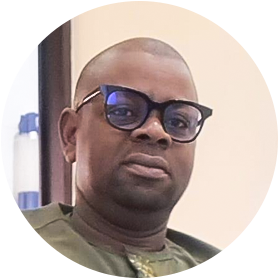THE NIGERIAN HEALTH SECTOR AND THE BRAIN DRAIN SYNDROME
In recent years, Nigeria has faced a mass exodus of its skilled medical professionals to other countries, often referred to as the "brain drain syndrome." This unfortunate phenomenon has far-reaching implications for the country's healthcare system, economy, and overall development. It is imperative to delve into the root causes, consequences, and potential solutions to this pressing issue.
The decision of doctors to leave Nigeria is not entirely arbitrary but driven by several interconnected factors, including poor working conditions, desire for career development and security concerns among others. Many doctors cite inadequate infrastructure, lack of medical supplies, and poor remuneration as primary reasons for seeking opportunities abroad where conditions are perceived to be better. It is no longer news that nearly every health worker in Nigeria is seeking opportunities to relocate to Europe, Asia or America. The endless fracas between governments and health-based professional bodies is a living testament.
Limited opportunities for career advancement, research funding, and specialized training within Nigeria often drive professionals to seek more promising prospects elsewhere. Even though some Nigerian universities have managed to produce healthcare professionals who stand shoulder-to-shoulder with their peers from across the world, the working conditions for these professionals in Nigeria are nowhere near what their contemporaries enjoy elsewhere in the world.
The prevailing security challenges in most parts of Nigeria have also contributed to a sense of instability and prompted some healthcare professionals to seek safer environments for themselves and their families. Every now and then, stories emanate from different corners of the country, of health workers being abducted from their homes or places of work. Health workers’ unions have embarked on industrial actions on the account of this.
The consequences of this brain drain are profound and multifaceted. The mass departure of skilled doctors exacerbates the already strained healthcare system, thereby reducing access to quality medical care for millions of Nigerians, especially in rural and underserved areas. Health facilities in Nigeria are saturated with patients in dire need of medical attention, while the health workers are in short supply.
Also, Nigeria loses significant investments made in training these professionals because their mass exodus out of the country means the citizens never get to enjoy their services. Furthermore, the outflow of doctors hampers economic growth as a healthy population is crucial for sustainable development. Additionally, the emigration of doctors reflects poorly on Nigeria's ability to retain talent and provide adequate healthcare, impacting its global standing. This is a slight on the Nigerian state.
Addressing the brain drain of Nigerian health workers requires a comprehensive approach. There is need to invest in healthcare infrastructure, ensuring availability of medical supplies, and enhancing doctors' salaries and benefits are essential steps to improve retention. The relevant agencies need to establish robust education programs, research opportunities, and avenues for healthcare professionals to grow. This can incentivize the Nigerian health workers to stay and contribute to the nation’s healthcare sector.
Implementing policies that address security concerns, provide additional incentives for healthcare professionals in rural areas, and strengthen the healthcare regulatory framework are crucial. Nigerian health workers are more likely to want to stay back if they know their security is guaranteed.
The brain drain of health workers in Nigeria is a complex issue that demands concerted efforts from all stakeholders. Sustainable solutions must prioritize improving working conditions, enhancing career development opportunities, addressing security challenges, and implementing supportive policies. Nigeria must commit to investing in its healthcare infrastructure and valuing its healthcare professionals to stem the tide of brain drain and build a robust and resilient healthcare system that meets the needs of its people. This way, Nigeria can retain its talented medical professionals, and pave the way for a healthier and more prosperous future for all its citizens.

Hillary Chukwu
Communications Specialist (HSCL ACE 3)







